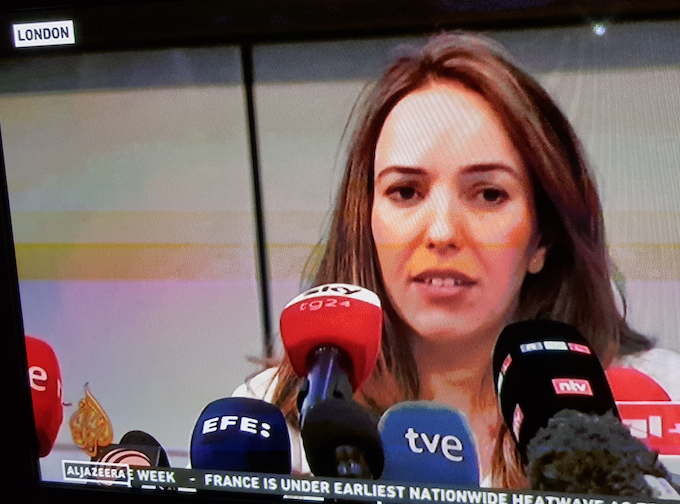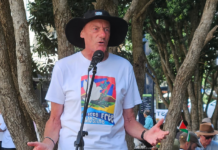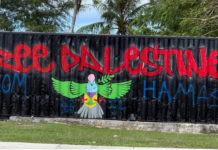
Pacific Media Watch newsdesk
A media freedom advocacy group has called on New Zealand to end its silence over the Julian Assange case in what it called a “dark day for global press freedom”.
The UK Home secretary Priti Patel yesterday signed the extradition to send Australian journalist Julian Assange, founder of WikiLeaks, to the US, which has charged him for publishing leaked evidence of their war crimes.
The Guardian’s editorial said the decision “ought to worry anyone who cares about journalism and democracy”.
Assange, 50, has been charged under the US Espionage Act, including publishing classified material. He faces up to 175 years in jail if found guilty by a US court. This action potentially opens the door for journalists anywhere in the world to be extradited to the US for exposing information deemed classified by Washington.
- READ MORE: UK approves US extradition of WikiLeaks founder Julian Assange
- Other Julian Assange reports
Human rights groups have called for Assange’s release.
The International Federation of Journalists, representing more than 600,000 journalists tweeted: “The UK decision to allow the extradition of Assange is vindictive and a real blow to media freedom.
“He has simply exposed issues that were in the public interest and Patel’s failure to acknowledge this is shameful and sets a terrible precedent.”
Lack of accountability
Aotearoa 4 Assange (A4A) said in a statement that the New Zealand government could no longer remain silent on this case.
A4A’s Matt Ó Branáin asked: “What will our government’s position be when it’s a New Zealand investigative journalist being imprisoned or extradited?
“What will this total lack of accountability mean the next time the US asks us to send our troops to die in another war?.”
The Guardian warned this “potentially opens the door for journalists anywhere in the world to be extradited to the US for exposing information deemed classified by Washington”.
The editorial said: “The charges against him should never have been brought. As Mr Assange published classified documents and he did not leak them, Barack Obama’s administration was reluctant to bring charges.
“His legal officers correctly understood that this would threaten public interest journalism. It was Donald Trump’s team, which considered the press an ‘enemy of the people’, that took the step.”
Ó Branáin said: “We reiterate our call for Prime Minister Jacinda Ardern to stand with Australian Prime Minister Albanese’s calls for our allies the UK and US to bring an end to this, and bring Assange home.”







































